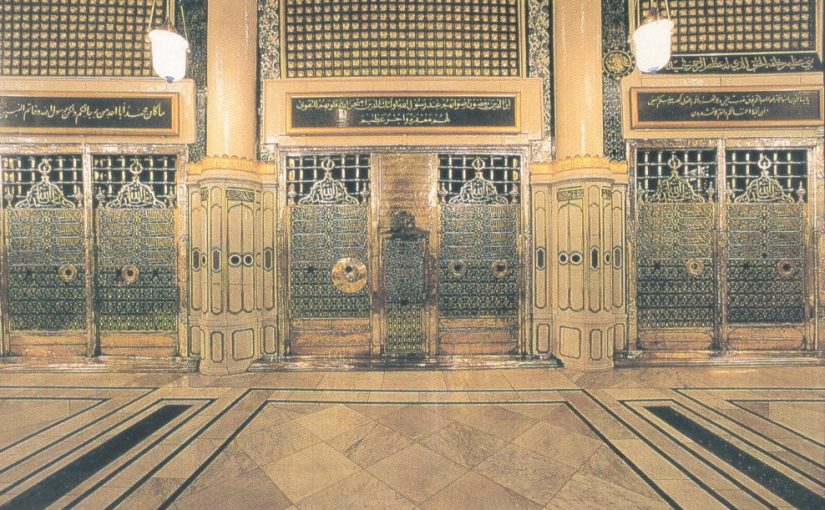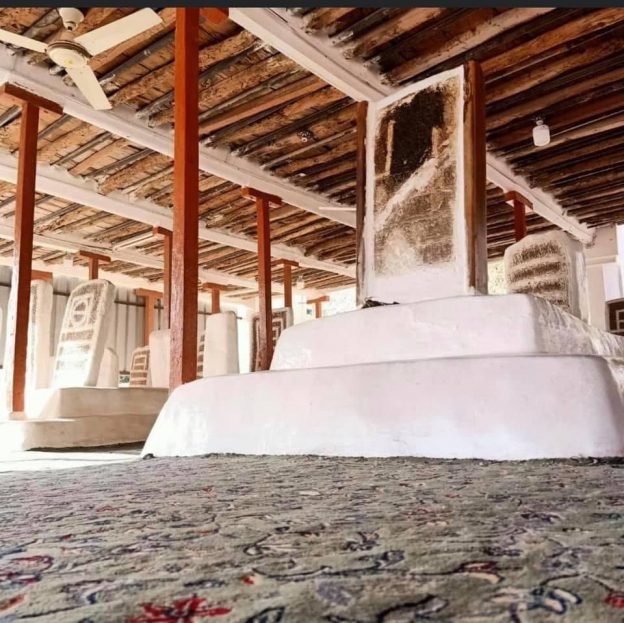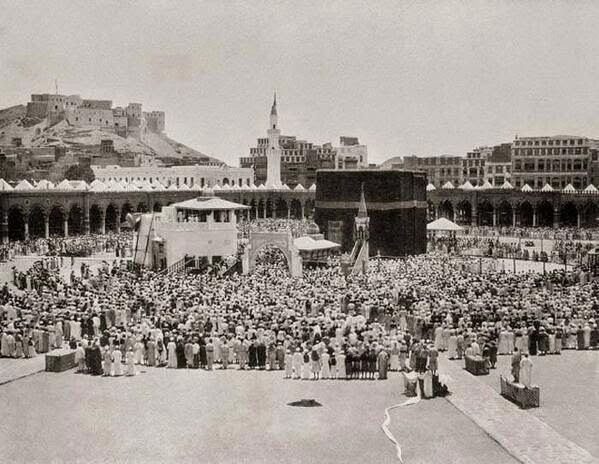This is how Imam al-Haddad (may Allah benefit us by him) describes standing at Arafat:
Category: Early Imams
Imam al-Haddad and the Ka’bah
Imam al-Haddad (may Allah benefit us by him) says:
وشاهدتْ الأرواحُ مِنَّا شعائراً معظمةً قَدْ ضَمَّها البيتُ و الفِنا
مقامٌ و حِجْرٌ و الشَّرابُ وإِنه لَكَوْثَرُ دارِ الخُلْدِ في عَالَمِ الفَنا
و كَمْ مَرَّةٍ عانقتُها و التزمتُها بِمُلْتَزَمِ الخَيْراتِ و الفوزِ و الهَنا
Our souls witnessed the sacred and venerated places in the precincts of Allah’s House: Continue reading Imam al-Haddad and the Ka’bah
Imam al-Haddad’s Plea to the Prophet ﷺ
This is how Imam al-Haddad addresses a plea to the Prophet ﷺ . Verses from his great poem, al-Ra’iyyah al-Kubra:
نبيَّ الهُدى لا تَنْسَني من شفاعةٍ
فإني مُسيءٌ مُذْنِبٌ ذو جرائرِ
The Two Types of Wellbeing
Imam al-Haddad (may Allah benefit us by him) teaches us that there are two types of wellbeing (‘afiyah):
Physical ‘afiyah is for the body to be safe from falling into sin and not to be affected by illness.
Spiritual ‘afiyah is for the heart to be free from doubt and delusion and from concealing hatred for any Muslim.
The one who is blessed with both types of ‘afiyah will be consistent in seeking Allah and obeying Him. This is a manifestation of Allah’s bounty and He gives it to whomever He wishes.
Image: the minaret of Masjid al-Fath, the mosque which Imam al-Haddad built at Hawi, near Tarim.
The Good of this World and the Good of the Hereafter
We are all familiar with the well-known Quranic supplication: “Our Lord! Grant us the good of this world and the good of the Hereafter, and protect us from the torment of the Fire” (2:201). But what is meant by the good of this world and the next? Imam al-Haddad (may Allah benefit us by him) gives three meanings for each.
The good of this world has three meanings: Continue reading The Good of this World and the Good of the Hereafter
Which Ratib Should I Recite?
Answered by Sayyidi Habib Umar bin Hafiz (may Allah protect him and benefit us by him)
Should I recite the Ratib of Imam al-Haddad or the Ratib of Imam al-Attas?
If you cannot recite both, there is no problem to alternate between the two Ratibs – one takes the place of the other.
Imam al-Haddad on Steadfastness
In this short poem, Imam al-Haddad counsels us to be people of sabr (steadfastness or patience). He extols the virtues of steadfastness, gives glad tidings to those who possess this trait and points to its connection to other lofty spiritual stations. He reminds us of the nature of tribulations and their connection to the divine decree. Finally, he calls upon us to emulate the steadfastness of the pious who have gone before and their master, the Prophet Muhammad ﷺ Continue reading Imam al-Haddad on Steadfastness
Imam Hasan, son of Imam al-Haddad, and the Effect of Hajj
Imam Hasan, the son of Imam Abdullah bin Alawi al-Haddad was a seeker, a person of piety and a scholar who acted according to his knowledge. Imam al-Haddad, however, was waiting for him to reach higher levels. He said: “When that son of mine performs hajj something will be ingrained in him which was not in him before.” Continue reading Imam Hasan, son of Imam al-Haddad, and the Effect of Hajj
Your Words Are Like Fruit
Imam al-Haddad (may Allah have mercy upon him and benefit us by him) explains that your speech is a reflection of your inner state.
“Your words are the fruit which you produce. So observe them: are they foul or are they good? What you find is what you are, for they are a part of you. A pure container only pours out that which is pure; and the opposite is true. Likewise, a good palm tree, or any tree, produces good fruit; and a foul tree produces foul fruit. ‘Every container gives of what it is contained within it.’ Allah the Exalted says: The good land produces abundant vegetation by the will of its Lord, whereas the foul land hardly produces anything (7:58).”
Source: Tathbit al-Fu’ad, Vol 1, p.27
Imam al-Haddad Rebukes One of His Students
We are blessed to have a large number of letters that Imam al-Haddad wrote to his students. Each letter contains many lessons for us and paints a picture of the methods the Imam used in nurturing his students and guiding them along the path.
In this letter, Imam al-Haddad issues a strong rebuke to one of his students. Before even addressing him personally, he eloquently reminds him of the worthlessness of this life and warns him against being attached to anything worldly. He asks Allah to rectify his heart and bless him with contentment. Then comes the rebuke: Continue reading Imam al-Haddad Rebukes One of His Students










